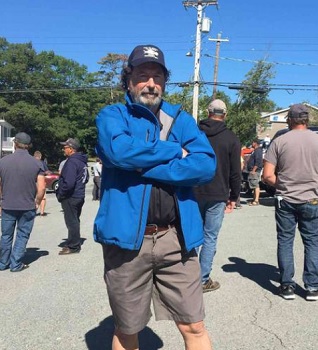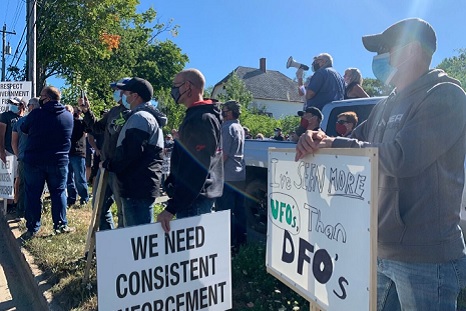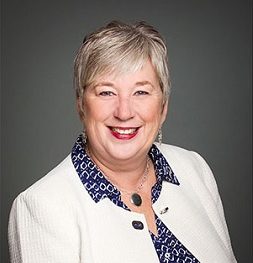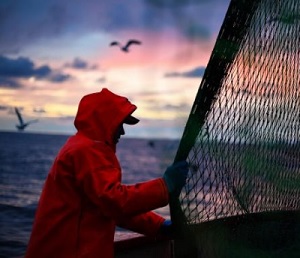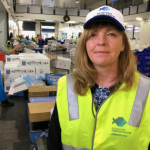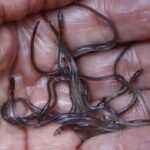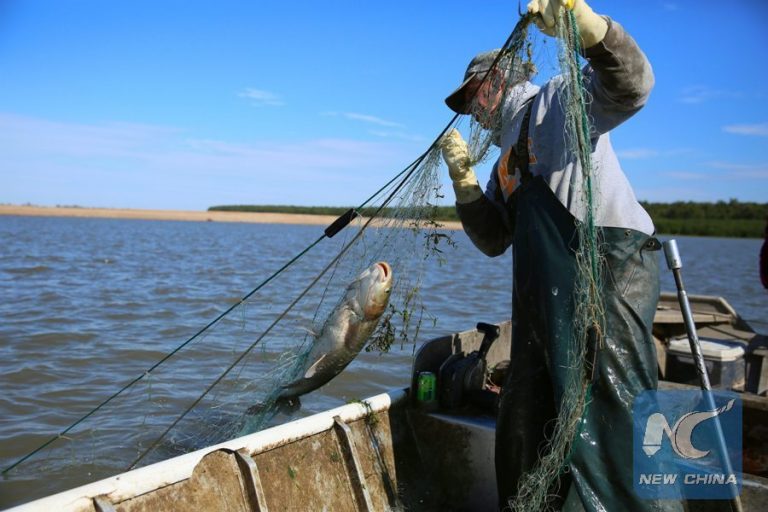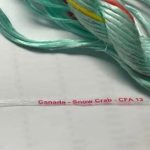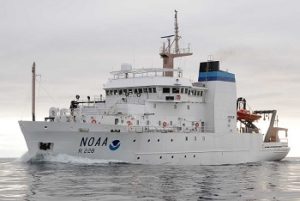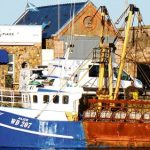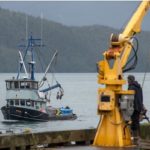“Everybody who has ever been a fisherman was drawn to it because of the freedom,” Erikson said. “The freedom to be your own boss, the freedom to be responsible to no one but yourself.” But money, freedom or even a viable living from the sea are in increasingly short supply on the B.C. coast, especially for young fishermen, said Jim McIsaac, vice-president of the Canadian Independent Fish Harvesters’ Federation. The number of people that can fish for a living is dropping because the cost of buying or leasing the Individual Transferable Quotas (ITQs),, The problem, McIsaac said, is that on the West Coast of Canada, the ownership of fishing licences and ITQs are not limited to fishermen.,, The federal government’s response,,, >click to read< 08:40
Tag Archives: fishing rights
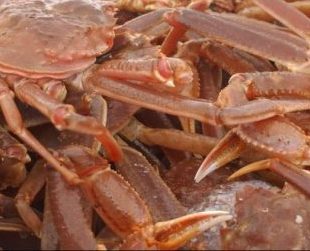
Snow crab fishing rights: First Nations leaders say they’ll drop court action if government agrees to mediated settlement
The chiefs of Madawaska and Tobique First Nations say they have been seeking to exercise their treaty right to fish snow crab for 25 years, and point to volatile protests over lobster fishing as an example of the consequences of letting such disputes go unresolved. “Our Aboriginal right to engage in the fishery is not being recognized, the consequence of that is playing out before us in Nova Scotia,” Tobique Chief Ross Perley said in a news release Tuesday. >click to read< 12:04
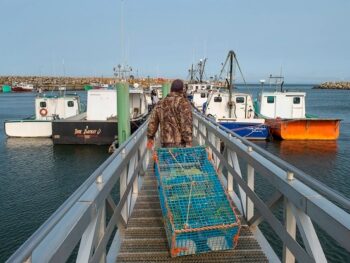
Lorne Gunter: Here’s the real back-story to the Maritimes lobster dispute
A 1999 Supreme Court decision, the Marshall decision, affirmed a supposed ancient treaty right to hunt and fish out of season. The only limitation the court placed on this apparently pre-existing right was that First Nations could earn only a “moderate livelihood” with their out-of-season activities. The problem now, we are told over and over, is the failure of the federal government over the intervening 20 years to negotiate a fisheries management framework that defines, limits and regulates “moderate livelihood.” Twenty-one years ago, I covered the Marshall case,,, The Marshall decision was an example of judicial bias and pre-conceived judgement. >click to read< 07:55
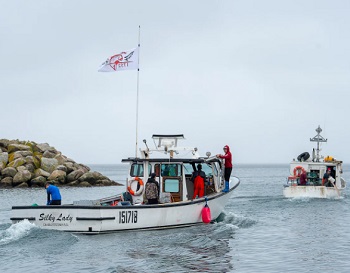
For Acadian fisherman, early Mi’kmaq fishery in N.S. bay can ‘never’ be respected
As he stands calmly splicing anchor rope, Roger LeBlanc describes the anxiety, anger and suspicion over a Mi’kmaq lobster fishery that is coursing through his small Acadian community. The threat perceived by LeBlanc, 61, is the launch of a lobster fishery by Sipekne’katik First Nation in September,,, In the weeks that followed, Indigenous traps were cut, a boat burned, vehicles were destroyed, and one lobster pound that handles Indigenous catch was damaged while another was burned down. The actions by groups of up to 200 people have drawn condemnation from across party lines in Parliament. >click to read< 13:40
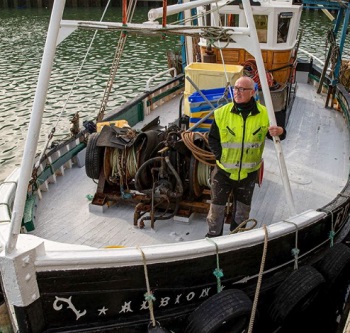
Brexit May Be Too Late to Save Britain’s Fishermen
Derek Reader coats the deck of his 40-foot fishing boat in salt-resistant paint ahead of another punishing winter hunting plaice, turbot and cod in the Irish Sea. He hopes it will be his last season. The U.K. has made regaining control of its fishing grounds a central demand in protracted and fraught talks on a post-Brexit trade deal with the European Union. Yet the last trawlerman in the English port of Fleetwood, which once boasted 120 vessels like his, plans to sell the MFV Albion and quit the industry. “I voted for Brexit and I hope that we do take back our waters, but it’s too late for Fleetwood,” said Reader, 60. “If a new fishing deal helps me get a better price that’s great, but I can’t make ends,,, >click to read< 09:39
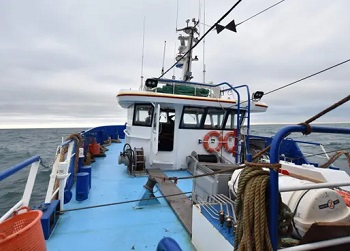
Catches, quotas and communities: the key fisheries issues at stake
Only a few hours after accession talks had begun on 30 June 1970, the UK government was told that a common fisheries policy had been agreed by the original six members of the community. It was a fait accompli. The UK had to hand over equal access to its waters and the catch quotas for each country were fixed on the basis of the recorded catches of the various national fleets between 1973 and 1978. It led to some very unpalatable outcomes, including those in the Channel, where the UK’s share of the cod quota stands at 9%, whereas France’s share is 84%. Today, EU fishing fleets catch 675,000 tonnes of fish in UK waters – 60% of the total caught in the UK sector. British fishermen catch just 88,000 tonnes, or 16% of the fish taken in EU waters. >click to read< 13:39

Commercial fishermen rally in Digby, Ex-fisheries minister calls for pause on out of season fishing and protests
Several hundred commercial fishermen held a rally Tuesday in Digby, N.S., as tensions continued to simmer over expanded Mi’kmaw lobster fishing in the area. There were calls for a pause on all out-of-season fishing by First Nations and an audit of commercial licences awarded to bands following the 1999 Marshall decision that recognized their right to fish for a moderate livelihood. Afterward, some fishermen gathered outside a lobster facility in New Edinburgh suspected of buying lobster harvested by Mi’kmaq fishermen when the season is closed. There was an RCMP presence at the rally, which was held on the eve of the Wednesday opening of commercial fishing in Lobster Fishing Area 35 in the Bay of Fundy. >click to read< 22:03
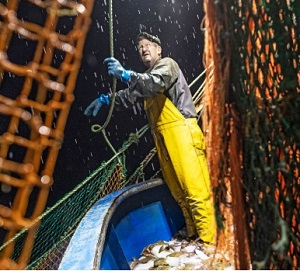
Brexit: Could a fight over British fish put a Brexit deal at risk? – Why the Brexit Talks Could Still Fail
For generations, boats have left this port to fish in the waters between France and England. Look across the water from Boulogne on a clear day and you can see Dover. It is just two and a half months until the end of the year, and the close of Britain’s transition period. If a Brexit trade deal has not been agreed by that point, Boulogne’s fishermen may face a truly profound change to their lives. Even if there is a deal, access to British coastal waters may be curtailed. If the UK leaves without an agreement, then the impact would probably be felt much more severely. >click to read< , Why the Brexit Talks Could Still Fail – >click to read<, Brexit: Fishing in Troubled Waters – >click to read< 10:30
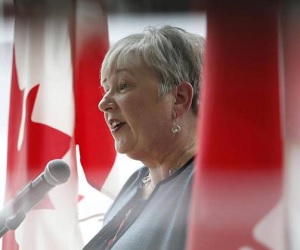
Trudeau government rejects lobster quota system for commercial inshore fleet
Fisheries and Oceans Minister Bernadette Jordan issued a statement Friday after meeting with commercial fishermen the day before. “As confirmed in that meeting, there is no plan to move to a quota system for the commercial lobster fishery and it is not being considered,” Jordan said. For decades, conservation in the billion-dollar commercial lobster fishery has been maintained by limiting the number of licence holders and traps. Stocks throughout Nova Scotia lobster fishing areas are healthy. Three Mikmaw parliamentarians have proposed the creation of an optional Atlantic First Nations fisheries authority to administer an Indigenous fishery. >click to read< 19:13
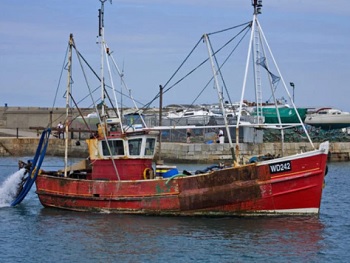
Review Shows Irish Fishing Industry Buoyed By Exports But Brexit & Coronavirus Cast A Shadow
The Department of Agriculture, Food and the Marine’s latest Annual Review and Outlook for the fisheries sector is a generally positive one, though tempered by the challenges of Brexit and the coronavirus. Published today, Thursday 8 October, the review cites CSO figures for 2019 which put the value of Irish seafood exports at €577 million with increases in the value of both salmon and mackerel, Ireland’s most valuable export catches. The coronavirus pandemic has seen similar challenges experienced across the fisheries and aquaculture sectors over the course of 2020 thus far. “Nonetheless, in spite of the difficulties, the fishing industry has continued to keep food in our shops and on our tables during this extraordinary time,” >click to read< 14:10
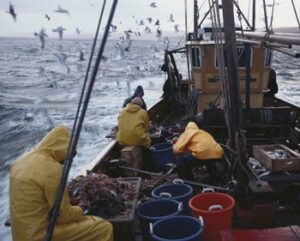
Will Britain lose another fishing war?
On average, a fish in the North Sea crosses five territorial waters frontiers every day. They don’t have passports or face quarantine. Britain made a fool of itself during the three cod wars it fought with Iceland between 1956 and 1976. British fishermen decided these were “traditional” waters and the Royal Navy was sent in to try and intimidate the Icelandic fishing boats. Other than geo-thermal energy, banking and airlines, the main Icelandic product is cod. They depended on hauling cod of out the northern waters close to Arctic Circle — we looked absurd trying to stop them. Does a new fish war with France, the Netherlands, and Spain now loom? The problem arises partly from the 1982 UN Law of the Sea convention which extended territorial waters out to 200 km. >click to read< 10:09
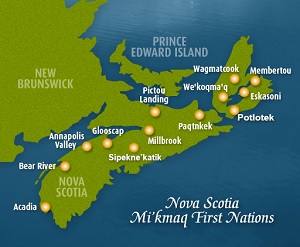
Lobster Fishery at a crossroads
According to the book Truth and Conviction: Donald Marshall Jr. and the Mi’kmaq Quest for Justice, when Marshall was asked to produce his fishing licence he replied, “I don’t need a licence. I have the 1752 Treaty.” Using the lifetime pension he received as compensation from the wrongful conviction, Marshall decided to fight for his ancestral Treaty rights to hunt and fish, and eventually, after an expensive and lengthy court battle, in 1999 the Supreme Court of Canada ruled in his favour. Marshall was acquitted on all the fishing charges, and the landmark ruling affirmed that the 1760 and 1761 Peace and Friendship Treaties with the British and Section 35 of the 1982 Constitution Act gave the Mi’kmaq, Maliseet, and Peskotomuhkati people, a total of 34 First Nations in the Maritime provinces and the Gaspé region of Quebec, the right to hunt, fish and gather in pursuit of a “moderate livelihood” from the resources of the land and waters. A subsequent Supreme Court clarification, known as Marshall II, stated that conservation-based regulations would still apply. >click to read< 08:59

Bernadette Jordan: Honouring treaties begins with relearning the history behind them
Nova Scotia’s relationship with Indigenous peoples is rooted in Treaties of Peace and Friendship. These Treaties set out long-standing commitments, mutual obligations and benefits between the Crown (now represented by the Government of Canada) and the Mi’kmaw, Maliseet and Peskotomuhkati people. So when people ask what Reconciliation looks like, I suggest that it could begin by honouring the promises made in the treaties. That starts by learning about the history of the treaties themselves. And we all have an obligation to do this, because we are all treaty people. >click to read< 10:36
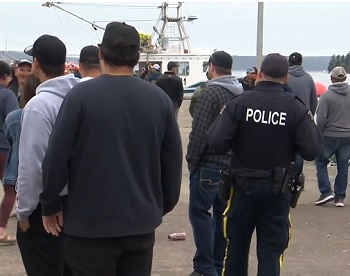
Sipekne’katik First Nation to meet with Minister Bernadette Jordan next week
After multiple calls to meet with the Department of Fisheries and Oceans, members of the Sipekne’katik First Nation will sit down with Fisheries Minister Bernadette Jordan next week. Chief Michael Sack tells Global News the details of the meeting, to be held amid an ongoing dispute between Indigenous and non-Indigenous fishers, are still in the works, but he says it will be held virtually as Jordan is returning from Ottawa and will need to self-isolate for 14 days upon her arrival. video, >click to read< 19:11
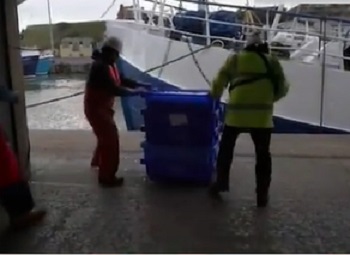
Brexit fishing breakthrough: Canada’s turbot war with EU sets example for Britain
A ten-year controversy between Ottawa and Brussels involving overfishing and fishing violations by EU vessels from Spain and Portugal in international waters outside Canada’s 200-mile limit only came to a head in 1995. Fishing in those waters is managed by the Northwest Atlantic Fisheries Organisation (NAFO). With scientists warning that turbot, the largest remaining commercial fish stock in the Northwest Atlantic, was overfished, NAFO established a total allowable catch and quotas for the 1995 fishing season. >click to read< 09:39
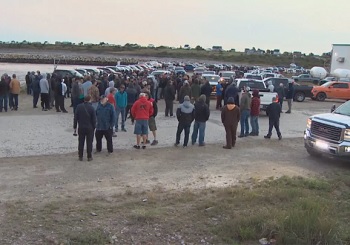
A peaceful protest by commercial fishermen turned confrontational in Nova Scotia
There was yelling and cursing between Indigenous and non-Indigenous fishermen, but there were no injuries. The commercial fishermen are protesting what they claim is an illegal lobster fishery in St. Marys Bay in southwestern Nova Scotia. They say a communal First Nations lobster fishery, where the sale of the catch is prohibited, is being used as a cloak for a large-scale commercial fishery. The Mi’kmaq reject that claim, arguing their right to fish for a moderate livelihood was affirmed by the Supreme Court of Canada in 1999. >click to read< 09:37
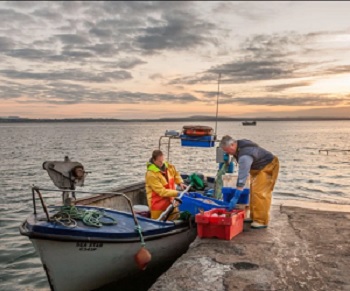
Fishing Rights: Irish fishing group will fight ‘tooth and nail’ against UK quota move
The head of an Irish fishing group has said they will fight “tooth and nail” a move by the UK government to double the catch quota for British fishermen post Brexit. Killybegs Fishermen’s Organisation CEO Sean O’Donoghue described the move as “off the wall stuff” and said it will never be accepted by either the EU or Irish government. Fishing rights have become an integral issue of the UK’s Brexit negotiations, with Boris Johnson’s government seeking to have a huge rise in the quota of British vessels in their waters. >click to read< 14:51
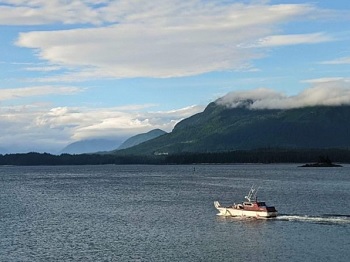
Metlakatla Indian Community suing Gov. Mike Dunleavy and senior state officials over fishing rights
The state’s sole Native reservation says the commercial fishing permit system unfairly prevents local fishermen from harvesting on their traditional fishing grounds, a right Metlakatla says is guaranteed to the tribe by Congress. The tribe of Metlakatla is asking a federal judge to prevent the state from requiring commercial fishing permits for tribal members. The people of Metlakatla have called Annette Island home since the late 19th century. That’s when roughly 820 Tsimshian people migrated with an Anglican missionary from coastal British Columbia to the then-uninhabited islands south of Ketchikan. But they weren’t just after land for a settlement. “The Annette Islands would have been worthless without access to fish and its adjacent fisheries,” attorneys for Metlakatla wrote in a lawsuit filed August 7 in federal court. >click to read< 18:06

Consultation lacking on decision to reactivate licenses for Indigenous communities
The reactivation of dormant lobster fishing licences by the federal government has prompted a terse statement from the P.E.I. Fishermen’s Association (PEIFA) and the Maritime Fishermen’s Union (MFU). The two organizations say they were left out of consultation over the reactivation of 10 lobster licences by the Department of Fisheries and Oceans (DFO) in the Lobster Fishing Area (LFA) 25, located on the western end of the Northumberland Strait between P.E.I. and New Brunswick.,,, The statement said fishermen were “frustrated” by the lack of consultation prior to the decision and called for the federal government to bring together Indigenous and non-Indigenous fishermen’s organizations. >click to read< 09:54
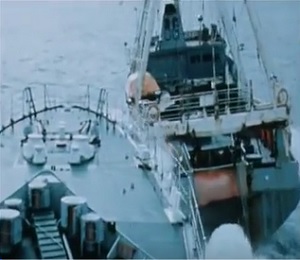
Fighting for Fish – The Cod Wars and Today: Lessons from an Almost War
Not once, but three times in the 20th Century, cod was almost the causus belli between Iceland and the United Kingdom in a string of events referred to collectively as the “Cod Wars.”1 The Cod Wars, taken together, make clear that issues of maritime governance and access to maritime resources can spark inter-state conflict even among allied nations. Fishing rights can be core issues that maritime states will vigorously defend. The First Cod War started on September 1st, 1958. Icelandic coastguardsmen sought to arrest and impound any British trawlers within their new 12-mile limit. >click to read< 09:59
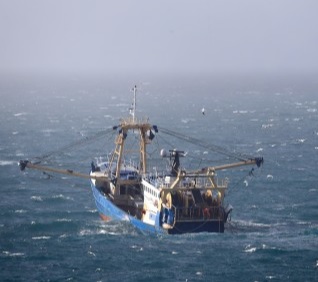
So long and thanks for all the fish: Irish fishermen say UK Brexit position could spell ‘unmitigated disaster’
Although a debate between the UK and EU around immigration has garnered more headlines in recent years, fishing rights are perhaps the most tangible example of why the UK wanted to leave in the first place. Over two-thirds of the EU’s fishing waters, and two-thirds of the EU’s fishing catch, belong to Ireland and the UK. Around half of Ireland’s fishing catch take place in UK waters. Now that the UK is leaving (and, theoretically, taking its waters with it) Ireland’s fishermen and fishing industry are under threat of being locked out of waters that had been frequented by Irish trawlers long before either country joined the EU. >click to read< 23:11
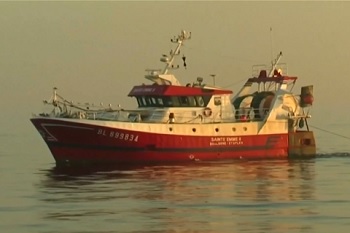
It’s four years since the Brexit vote. Now what?
On the 4th anniversary of Britain’s historic vote, Megan Revell explains where things stand with Brexit. At the time, Boris Johnson stressed there was no rush … Boris Johnson, 2016: “There is now no need for haste …” But now, as Britain’s Prime Minister, he’s under a time crunch. Boris Johnson, 2020: “Put a tiger in the tank (…) the faster we can do this, the better.” Britain officially left the bloc in January – but talks on a trade agreement – remember, one of the biggest issues of the Brexit debate – have made little progress. >click to read< 10:07
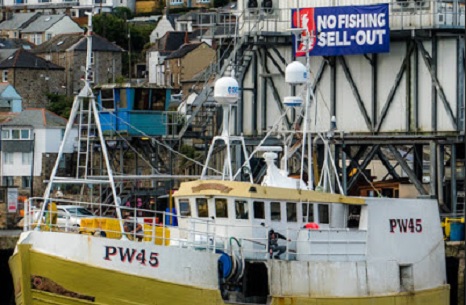
Brexit: EU preparing to row back on rights to fish in British waters
Brussels is preparing to back down over a Brexit fishing deal and acknowledge for the first time that European fleets do not have an automatic right to fish in British waters. In a concession to help to unlock negotiations, Michel Barnier is understood to accept that the UK will have to be treated as an independent coastal state and have annual negotiations with the bloc over fishing quotas from next year. The EU’s chief negotiator told European diplomats that the compromise would have to wait until other parts of the deal were closer to being finalised. >click to read< 22:19
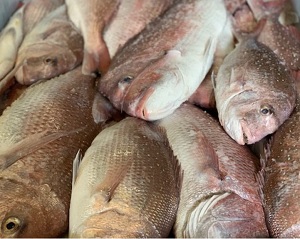
Fears of corporate takeover as SA Government seeks to put quotas on fisheries
Converting commercial fishing into a quota system could leave the industry open to corporate takeover, industry stakeholders fear, as the State Government seeks to tighten the net on fisheries with major reforms. SA Primary Industries Minister Tim Whetstone this month outlined key goals of a $24.5 million Marine Scalefish Fishery reform package he hoped to have in place by mid-2021, which would allocate transferable quotas to commercial fishing licenses. Marine Fishers Association executive officer Gary Morgan said the industry was made up of small local fishers who supplied local markets. If allocated quotas were not large enough for them to run a viable business, he said, “the majority wouldn’t have the money to buy additional quota” and could sell up. “Already, there have been companies sniffing around wanting to buy large chunks of quota,” Mr Morgan said. >click to read< 19:08
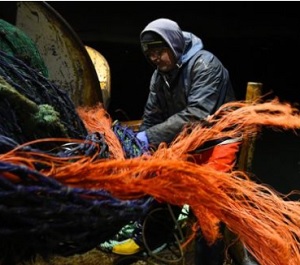
Battle lines being drawn over fishing rights
Fish have been served up among the main bones of contention between the UK government and the European Union. The negotiating mandate published on Thursday at Westminster is a long way from the vision for a future relationship for managing wild fish stocks in the European Commission’s proposals. That comes as no surprise to those who have seen the pre-negotiation posturing from the rhetoric of the 2016 Brexit campaign, to the priorities set out by Brussels along with the Withdrawal Agreement. >click to read< 23:13

Emmanuel admits Boris holds ‘fishing card’ but warns trade deal unlikely by end of this year
Emmanuel Macron has expressed doubt over a Brexit deal between the EU and UK by the end of 2020 because of debates over fishing.has expressed doubt over a Brexit deal between the EU and UK by the end of 2020 because of debates over fishing.has expressed doubt over a Brexit deal between the EU and UK by the end of 2020 because of debates over fishing.,, It is now down to Prime Minister, Boris Johnson, to negotiate a new trading relationship with the European Union, having already ruled out extending the implementation period. >click to read< 09:03
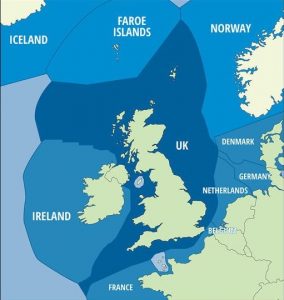
As both sides crank up the rhetoric, UK to outline post-Brexit trade vision. France warns both sides could ‘rip each other apart’
The UK is expected to contest the bloc’s demands that Britain stick closely to EU rules in exchange for access to European markets. It comes as France has warned that the two parties risk tearing themselves apart during the talks,, On Sunday the French Foreign Minister Jean-Yves Le Drian used strong language while predicting that tense negotiations lie ahead.,, The EU wants to keep access to British waters for European fishing boats, and leaders have suggested the issue will be linked to other matters such as financial services in the upcoming talks. >click to read< 08:46
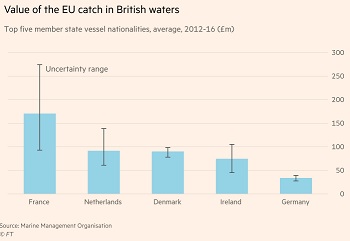
Brexit: Why fishing threatens to derail EU-UK trade talks
If Brexit Britain were to close its waters to foreign vessels, the impact would be immediate and severe on fishing communities such as those in Boulogne, adding to the pressures from climate change and warmer seas that fishermen say have driven away the cod and brought in more squid and spider crabs. Boris Johnson, the UK prime minister, fanned the flames last week by insisting that the UK will “take back control” and have full jurisdiction over the UK’s “spectacular maritime wealth”. Ensuring that fishing rights do not die with Brexit is a priority for the bloc’s coastal states, not least France, in future relationship negotiations with Britain that will begin in the weeks after the UK leaves the EU on Friday. >click to read< 07:58






